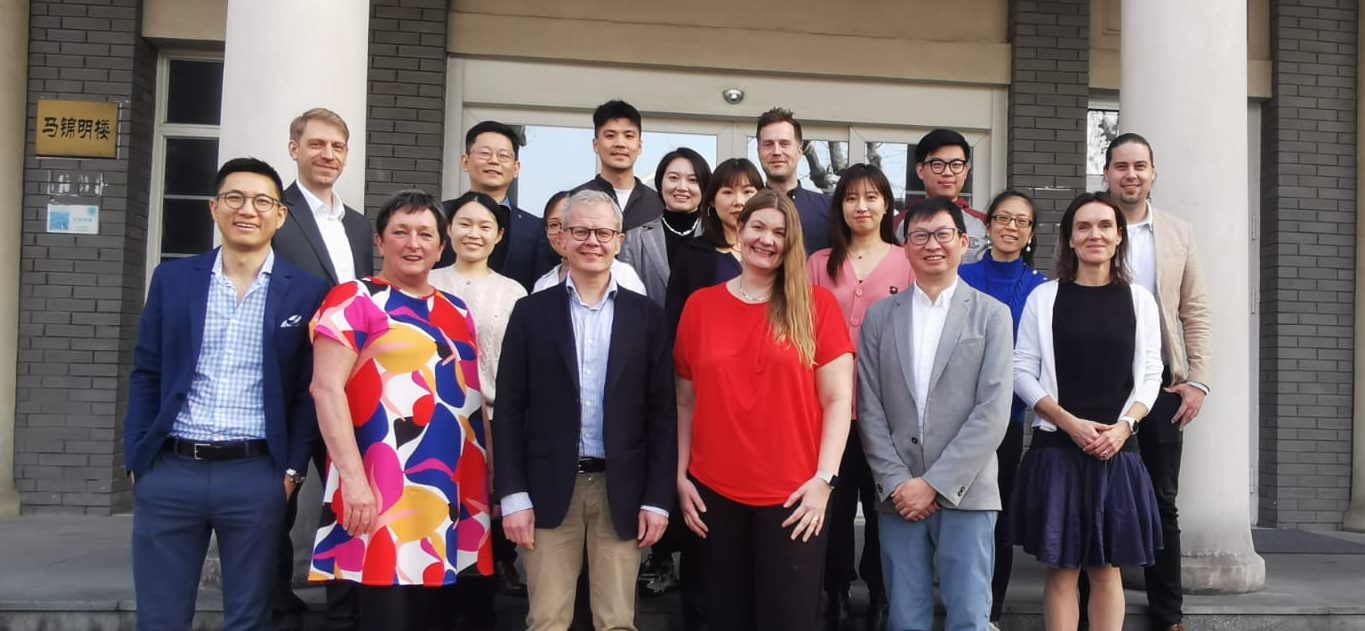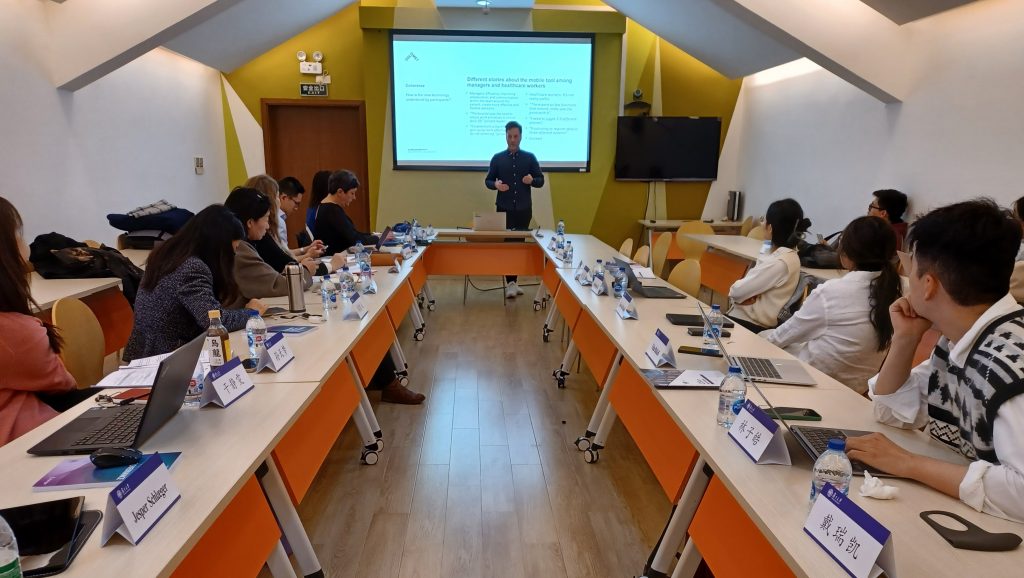The emerging digital transformation is having a profound effect on the provision of welfare services in China and the Nordic countries, and beyond. Digitization is expected to continue changing service offers and public administration. Expectations range from hopes for increased efficiency, justice and accountability, to dreaded problems such as social exclusion, dehumanization and inequality. In practice, however, we still know rather little about challenges and opportunities for managers, service providers and service users of e.g., digital case processing and digital platforms in education, e-health, rehabilitation and welfare services.
In a workshop with professors, post doc’s and PhD students from 12 universities in China, Estonia, Finland, Norway, UK and USA, the participants presented and discussed the topic from different professional perspectives, including anthropology, political science, social policy, and sociology. Despite the institutional and cultural differences between the countries, the experiences and perspectives resonated well across the country cases. The participants to discussed the relevance of the concept of digital welfare eco-systems to analyze and compare country cases to better understand the digital transitions we are observing all over the world. The participants were eager to continue developing joint publications on the basis of the promising discussions in the workshop.

Yijia Jing, Dean of the Institute for Global Public Policy and Chang Jiang Scholar in the School of International Relations and Public Affairs, welcomed the participants to Fudan University. Lei Zheng, Director of the Lab of Digital and Mobile Governance, also at Fudan University, gave an opening lecture that set the scene for the fruitful discussions that followed.
In his opening remarks Rune Halvorsen, Co-director of Center for digitalization of public services and social citizenship, Oslo Metropolitan University, argued that digital innovations have the potential to improve welfare services through greater efficiency, cost-effectiveness and ease of use but is also at risk of causing new inequalities and forms of exclusion. He maintained that we need critical thinking and knowledge about what is new, what remains the same, what it solves as well as map new problems arising from these processes.
Co-host Minna van Gerven, University of Helsinki, emphasized that digitalization is human driven. We need to make the human work in the development and use of digital tools visible. Digitalisation is not something that happens to society without the involvement of actors. In other words, technology are social-technology constructs. Also, we know that many innovation and implementation processes fail when people are expected to start using the devices and solutions developed by ICT engineers. This is why the social sciences and humanities are paramount to understand how and under which conditions digital solutions are most likely to be successful and contribute to the good of all people.
The existing typologies available in comparative welfare policy research do not help us to understand why some European countries perform better in the roll-out of e-governance in general and the digital welfare state more specifically. Comparisons of digitalization of society and the digitalization of welfare services between China and Europe are also few and far between. The countries we covered in the workshop represent different traditions for state, market, family and civil society relationships and interdependencies. But these relationships are also changing with the digitalization of public services in general and welfare services more specifically. In the future it will be important to incorporate a multilevel governance perspective in the analysis of the digital welfare eco-system, i.e. the nexus between the state, market, family and organized civil society in the provision of welfare and social protection to the citizens.
Both China, the UK and the Nordic countries are taking steps to reduce inequities in access to digital tools across gender, class, disability, ethnicity, and geographic boundaries though many access gaps still remain. Again, we find different policy traditions and approaches among the countries in how to deal with such access gaps.

The paper presentations included case studies of digital tools to monitor and improve poverty alleviation, improve the accessibility of government webpages and online services for persons with disabilities and the elderly, the use of digital devices among the elderly, in facilitation of local community services, one-stop shops (one door policies) for the provision of public services, digital coordination in hospitals, well-being and life satisfaction under lockdown, and public procurement of services.
The participants all agreed that the workshop was a great success and hoped to be able to continue the discussions in the near future.
| Facts Dates: Thursday 14 and Friday 15 December 2023 Venue: The Nordic Centre, Fudan University Organizers: Fudan University, Oslo Metropolitan University, University of Helsinki, and University of Tartu Hosts: Rune Halvorsen, Biao He, Minna van Gerven, and Felicia Tian Title: Sino-Nordic Workshop Development, opportunities, and challenges of the digital transformation of welfare services in China and the Nordic countries Number of participants: 25, including professors, post doc’s and PhD students from 12 universities in China, Estonia, Finland, Norway, UK and USA. The seminar was in part funded by a grant from the Nordic Centre, Fudan University. |
